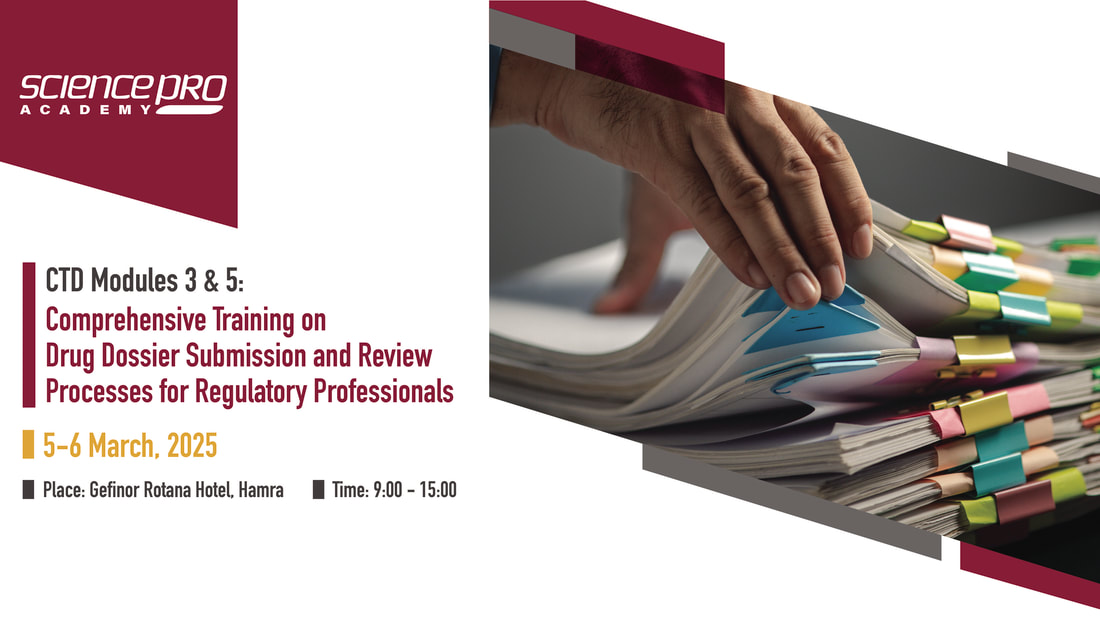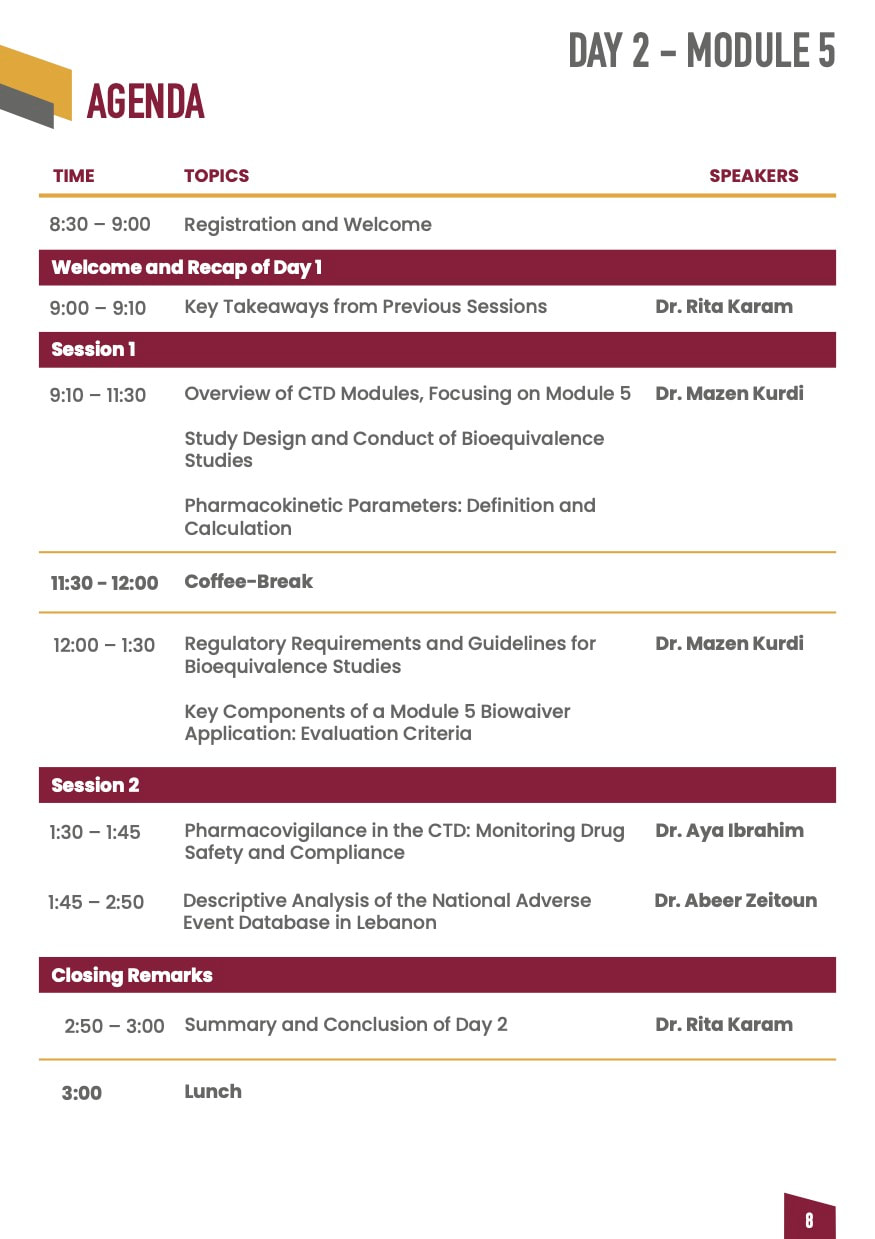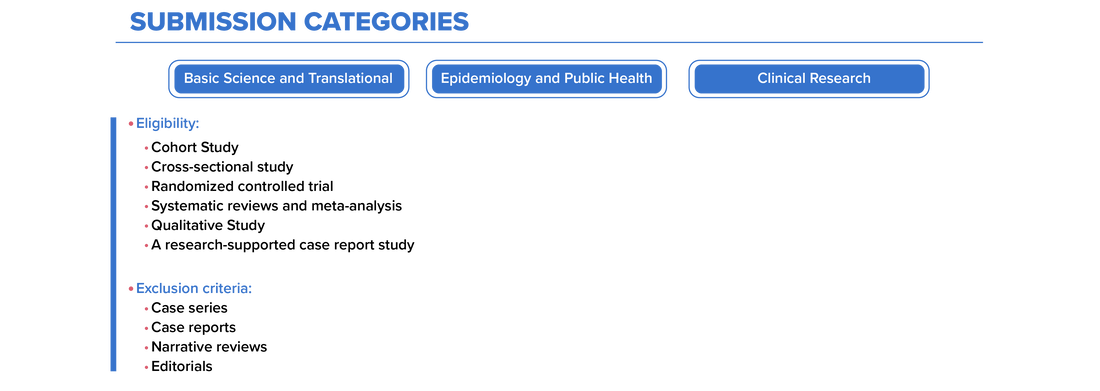COURSE DESCRIPTION
This training workshop is designed to provide an in-depth understanding of the critical aspects of preparing and reviewing Modules 3 and 5 of the Common Technical Document (CTD) in pharmaceutical regulation, focusing on the processes and standards outlined in Lebanese guidelines. The program covers key components such as quality documentation for active substances (API) and finished drug products, evaluation of bioequivalence studies, pharmacokinetic parameters, and requirements for CTD Modules 3 and 5 submissions.
Participants will gain valuable insights into how their dossiers are assessed by the reviewers, including the evaluation process, key factors leading to approval, rejection, or pending decisions, and common pitfalls to avoid. The training will also explore strategies for successful dossier submission based on Lebanese guidelines. Through interactive sessions and practical exercises, participants will develop the skills and knowledge essential for preparing high-quality dossiers and understanding the review process to ensure compliance with the national standards. At the end of the training workshop, a dedicated session will highlight findings from Lebanon's National ADRs Database, focusing on ADRs and medication errors reported to the Lebanese Pharmacovigilance Program.
Participants will gain valuable insights into how their dossiers are assessed by the reviewers, including the evaluation process, key factors leading to approval, rejection, or pending decisions, and common pitfalls to avoid. The training will also explore strategies for successful dossier submission based on Lebanese guidelines. Through interactive sessions and practical exercises, participants will develop the skills and knowledge essential for preparing high-quality dossiers and understanding the review process to ensure compliance with the national standards. At the end of the training workshop, a dedicated session will highlight findings from Lebanon's National ADRs Database, focusing on ADRs and medication errors reported to the Lebanese Pharmacovigilance Program.
INTENDED LEARNING OBJECTIVES |
STRUCTURE |
|
Review of a Dossier CTD (Modules 3 and 5):
• Understand the structure and requirements of CTD modules 3 and 5 • Prepare High-Quality Drug dossier for submission • Understand the regulatory assessment process and factors influencing dossier outcomes to address challenges effectively • Develop strategies for successful dossier submissions while ensuring compliance with regulatory standards TARGET AUDIENCERegulatory Affairs Professionals
• Pharmaceutical Industry Professionals • Healthcare Practitioners • Academics and Researchers in Pharmacy and Pharmacology BENEFITSEnhanced understanding of regulatory requirements and guidelines.
• Improved dossier submission skills • Insight into the regulatory review process • Practical application through interactive exercises • Alignment with national standards • Networking opportunities with experts and peers in the pharmaceutical field. |
Day 1: Review of a Dossier CTD (Modules 3- Part S and Part P)
• Introduction to CTD and its importance in regulatory submissions. • Overview of CTD modules focusing on modules 3. • Quality Documentation for Active Pharmaceutical Ingredients. • Quality Documentation for Finish Drug Products. • Introduction to the self-assessment document. • Practical exercise on evaluating Module S and P • Review process and discussion on challenges in Module 3 assessment. Day 2: Review of a Dossier CTD (Module 5) • Overview of CTD modules, focusing on modules 5. • Study design and conduct of bioequivalence studies. • Pharmacokinetic parameters: Definition and calculation. • Regulatory requirements and guidelines for bioequivalence studies. • Key components of a Module 5-Biowaver application: Evaluation criteria. • Introduction to the self-assessment document. • Practical exercise on evaluating bioequivalence data. • Review process and discussion on challenges in bioequivalence assessment. Special Session: Sharing the results of a study on the analysis of Adverse Drug Reactions (ADRs) and Medication Errors reported by pharmaceutical companies to the LNPVP (2018–2023) |
DELIVERY FORMAT
Interactive presentations
• Case studies and group discussions
• Practical exercises
• Q&A sessions
• Certificate of Completion
• Case studies and group discussions
• Practical exercises
• Q&A sessions
• Certificate of Completion
Program
Click Here to Download the Full Program
| comprehensive_pharm_reg_train.pdf | |
| File Size: | 3517 kb |
| File Type: | |




